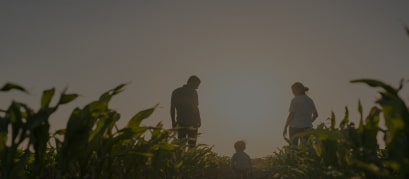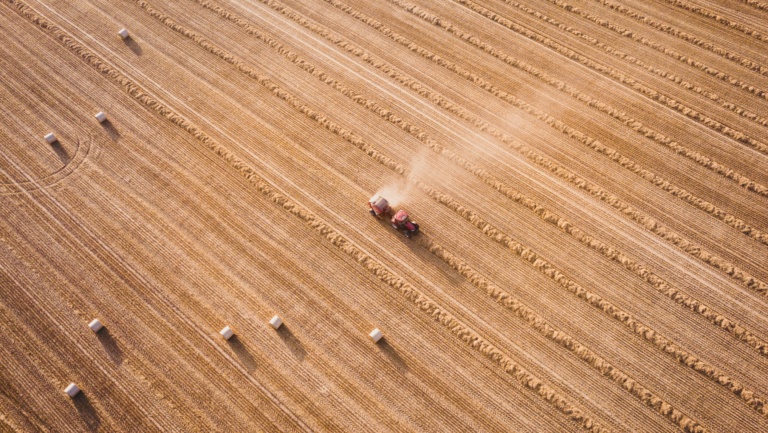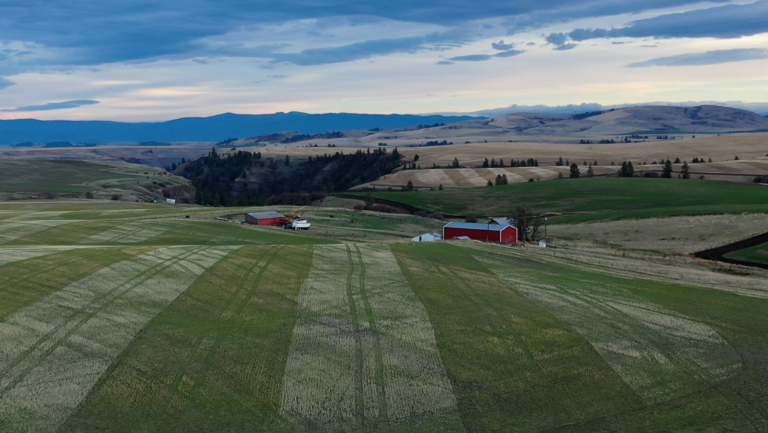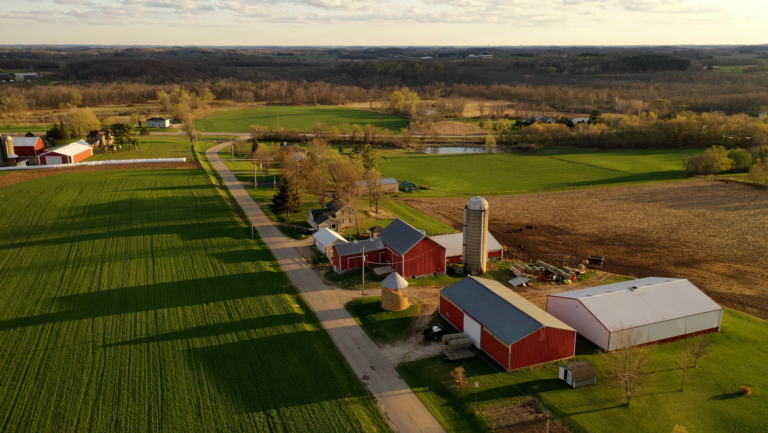How is COVID-19 Affecting the Agricultural Industry?
The COVID-19 pandemic is slowing global agricultural trade while also driving interest rates down.
In these uncertain times, navigating the challenges that have a lasting impact on your operation can be difficult. While much of the world is slowing down and responding to COVID-19 (coronavirus), farmers and ranchers continue to work, ensuring our nation’s food security.
The rate of COVID-19 cases continues to increase globally; so does fear and confusion by the overwhelming amount of information presented by the media. The uncertainty which surrounds this pandemic has left many producers in the agriculture industry wondering what direct effects will this have on a national and global level—and on their operations. And in what ways can U.S. farmers and ranchers prepare for the ripple effects it will create in the world economy.
As unresolved variables grow, the biggest impact we are beginning to see is on global trade. The circumstances around COVID-19 are disrupting economies across the globe and leading to major slowdowns or complete shutdowns of shipments of tradable goods. Trade deals have been impacted including phase one of the U.S.-China Trade Agreement. Economists and trade analysts’ skepticism on whether China can uphold their obligation to purchase $200 billion worth of American goods in the next two years—including $80 billion in agriculture goods—has only escalated as reported cases of COVID-19 continue to spread.
Trade complications are emerging in not only China but in other parts of the world as events are canceled due to the outbreak. For example, the USDA trade mission in Morocco to increase U.S. farm exports in North Africa has been indefinitely postponed.
Social Distancing’s Impact on Farm Commodities
Quarantines and social distancing measures are creating a bottleneck effect on the supply and demand chain. As demand slows—despite previously predicted increases in exports—money remains stuck in limbo on fields and in storage. This market disruption will likely be felt globally across the agricultural industry, as the cost of running operations exceeds profitability made through selling crops.
Thus far, the beef and pork markets are most susceptible to potential impacts of the coronavirus in two critical ways:
- Drop in commodity pricing; and
- Shortage of farm labor available for hog farms and slaughterhouses.
Projected cattle pricing has already dropped 19 percent due to fears that the coronavirus’ economic toll will hit consumers’ budgets and quarantines will keep them home with nonperishable foods. Major meatpacking company shares, like Tyson and JBS, have declined in response to the ongoing situation. The decline in beef and pork demand will likely have a trickle effect on other U.S. agricultural commodities, including corn and soybeans.
How are Farmers Coping with the Pandemic?
While it is important to stay informed and updated on what is happening in the world, it is of equal importance to keep a calm and clear head. Around 80 percent of people diagnosed with the novel COVID-19 report mild symptoms. The infection rate in China has declined drastically, with only 15 new cases reported last Thursday. Of the 80,793 confirmed coronavirus cases reported in China, 62,793 have fully recovered thus far, a number that has likely increased since this stat was pulled. These statistics are not meant to downplay the situation but show that with time and adequate preventative measures, it can and will be contained. The cyclical nature of the virus suggests that once it runs its course, there is a light at the end of the tunnel.
As the virus makes its way through the U.S., American farmers are continuing to closely monitor the effects it will have on their specific markets and focus on potential improvements that can be made to food safety practices within their own operations.
From labor shortage to volatile commodity prices, the best thing a farmer can do right now is remain informed through media outlets with reliable sources on COVID-19 updates. They can also monitor labor programs that will be implemented to alleviate the potential impact of the coronavirus on U.S. farms. It’s highly recommended for farmers to review their current employee policies when it comes to food handling and ensures there are appropriate preventative safety measures in place for those who are coming in direct contact with crops and livestock.
While the specific economic impacts of the coronavirus for the agriculture industry are currently unclear, there are steps farmers can take to maintain financial stability in an unstable market. Weather and the global trade market may be out of a farmer’s control, but input costs are not.
Financial Advice for Farmers During this Time
AgAmerica is open and committed to providing flexible financing to farmers across the country. There is no better time than now to assess the state of your finances. President and CEO Brian Philpot highlighted the silver lining in the midst of the chaos. “We’ve got cheaper gas and we’ve got cheaper interest rates,” he said.
“When rates tick down, it’s really a good time to reduce an expense item in the interest you’re paying, and that can be done by refinancing your current real estate, but also by consolidating what you’re paying for equipment and other types of debt.”
Low interest rates create an opportunity for farmers, ranchers, and landowners to:
- Refinance and consolidate their debt;
- Improve their cash position through working capital and lines of credit; and
- Lower their overhead and input expenses.
As Brian explains in the article, “You’ve got to have cash on hand to be able to put the crop into the ground and get it out. You don’t need to be burning through that in a time of uncertainty.”
Facing uncertainty in a volatile industry is nothing novel for the American agriculture industry. Farmers are hearty and full of perseverance and innovative thinking. There is no doubt that this new obstacle will prove to be no different. Rationality and financial preparation will better equip the American Farmer for the road that lies ahead.
Predictions for the Future of Agriculture
Along with our commitment to support farmers during this time of uncertainty, we will continue to work closely with our Chief Economist, Dr. Penson, to monitor commodities and assess high-risk regions. It is our responsibility to assist the farmer in weathering this storm through seamless and service-oriented financing. We acknowledge the reality of the situation and are analyzing the possibility of a recession, what that would mean for the agricultural community, and in what ways we can provide financial assistance to those in need.
Brian puts these current events into perspective. “One thing you can hang your hat on is whether people are in their house or out, they’ve got to eat. We’re not going to be able to shut off our food supply,” He points out. “Our industry is providing a necessity”.
Even in the face of a potential recession, American Farmers provide a commodity that consumers will always need. The bottleneck in supply and demand is only a temporary obstacle as health officials focus on containing the outbreak. Food is essential, not a luxury. There will always be a market for it. Our American Farmers should bear this in mind while continuing to make food quality and safety a top priority.
When we each focus on what we can do as individuals to help one another in a trying time, we have the potential to come out stronger together as a nation than we were before.






